Previous Access Hall Areas
St Edmund Hall’s Research Expos took place in 2015 and 2017. In 2019, the event was widened and developed into a new event open to the general public: Access Hall Areas. The second Research Expo took place on the afternoon of Saturday 25 February 2017. It saw the College showcase the wide diversity of research being undertaken by its students and academics – from undergraduates to Fellows – via sessions of short ‘Teddy Talks’ (all aimed at a non-specialist audience, many of these are now available to watch online) and three rooms of interactive displays and exhibits.
The Expo was open to all members of the College community: members of all three common rooms, staff and alumni (plus their families / guests).
Previous Expos
The 2017 Research Expo followed a similar model to that of the inaugural 2015 event, with interactive themed rooms (the Lab, the Salon and the Studio) and a series of short and accessible Teddy Talks, but also included a Pitch Your Research challenge and a round-table debate.
Find out more about the 2015 Research Expo, and watch videos of the Teddy Talks
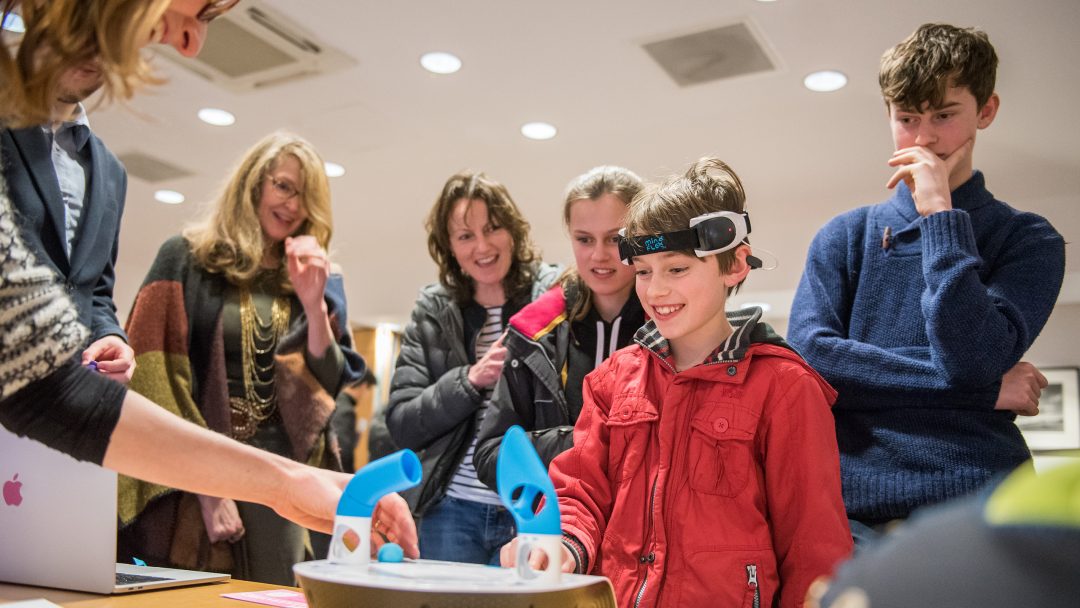
Watch Videos of the Talks
Each talk, given by one of our academics or postgraduate students on an aspect of their research, lasts around ten minutes and is aimed at a non-specialist audience.
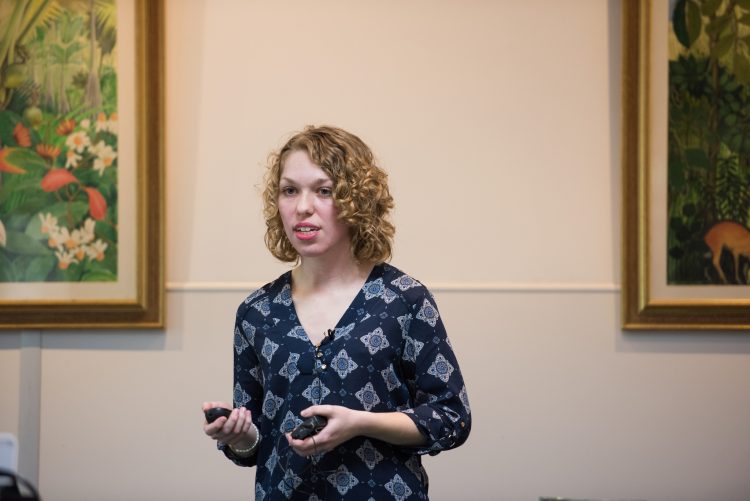
Melissa Bedard
Lights, Camera, Immuno-action! Research on cancer immunotherapy and its implications for the clinic
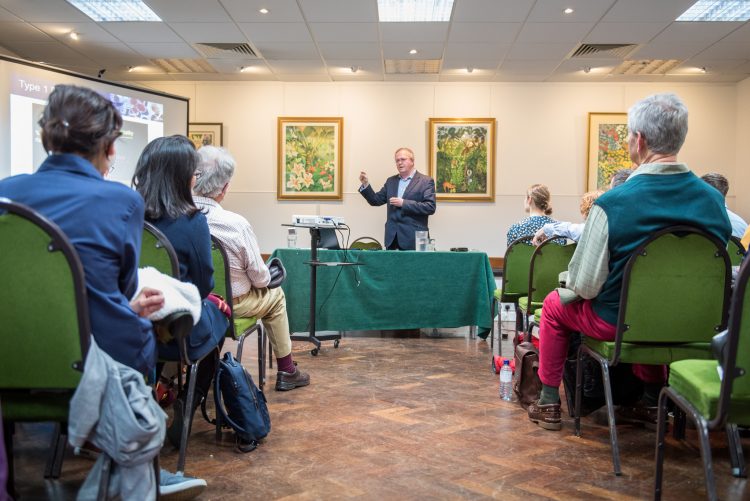
Prof. Paul Johnson
Pancreatic Islet Transplantation for Type 1 Diabetes – Bench to Bedside
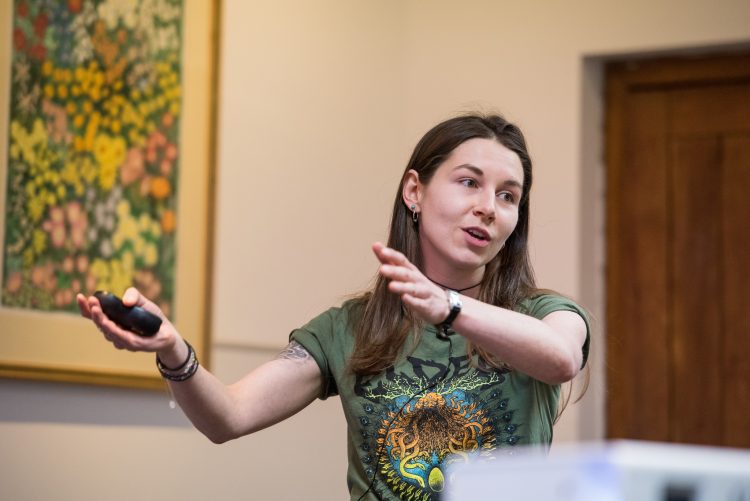
Jaz Hill-Valler
NextBASS: Observing Cosmic Microwave Background Foregrounds
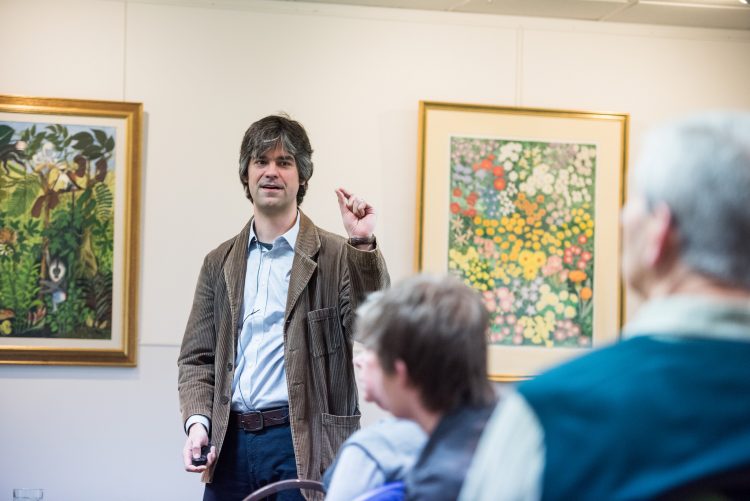
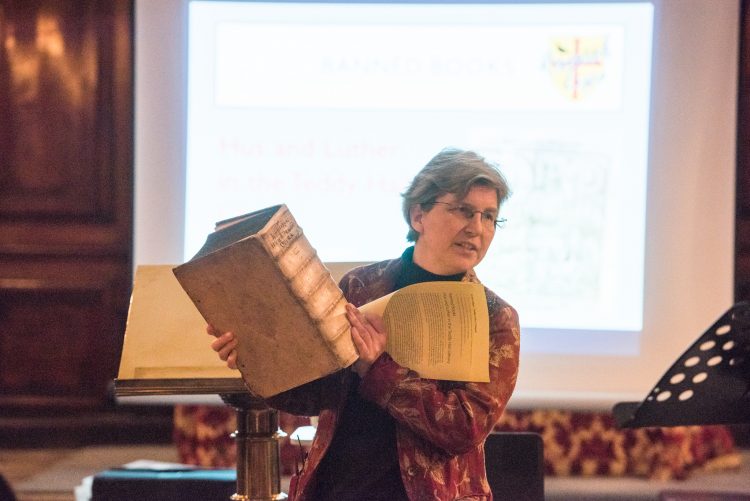
Prof. Henrike Lähnemann
Banned Books: Hus and Luther in the Teddy Hall Library
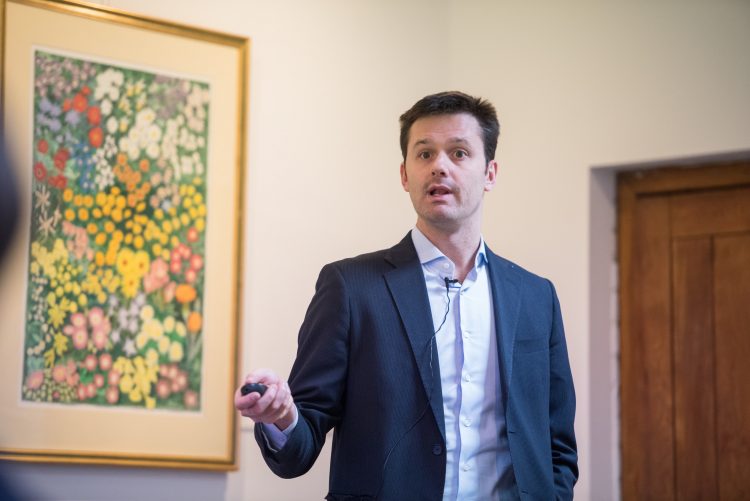
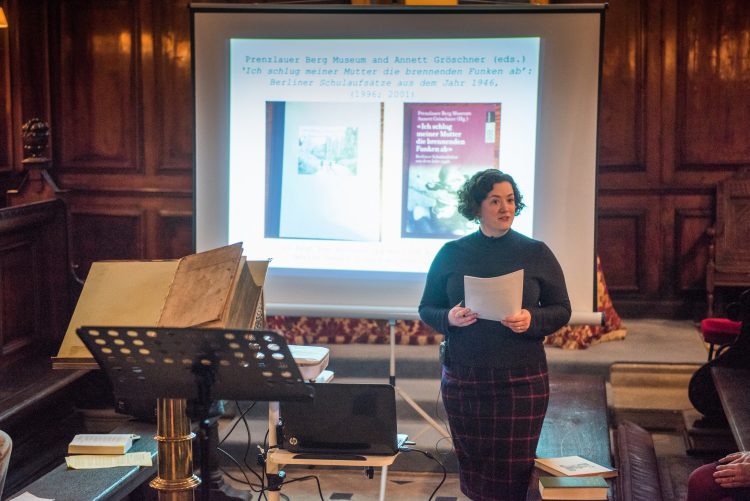
Dr Alex Lloyd
‘Boom, ratatata, hui-hui-sss-ttt, woouum’ – Children’s Views of World War II
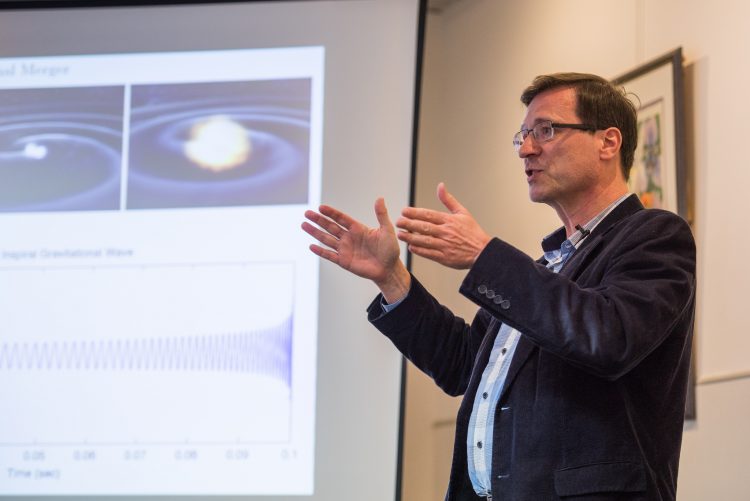
Prof. Philipp Podsiadlowski
Advanced LIGO: the New Era of Gravitational Wave Astronomy
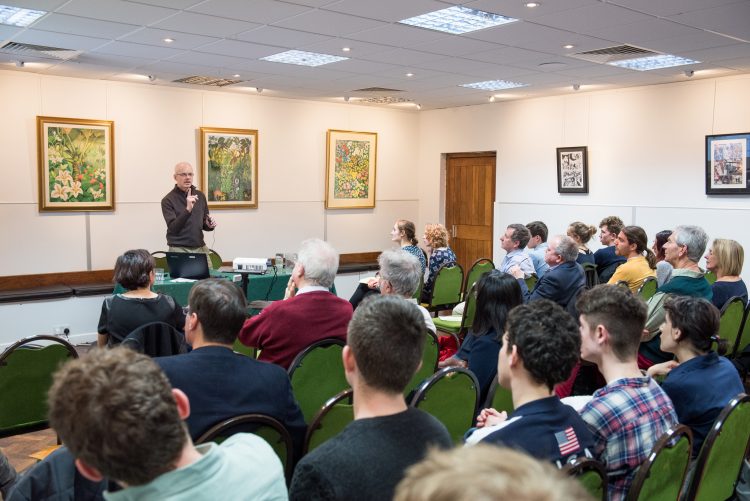
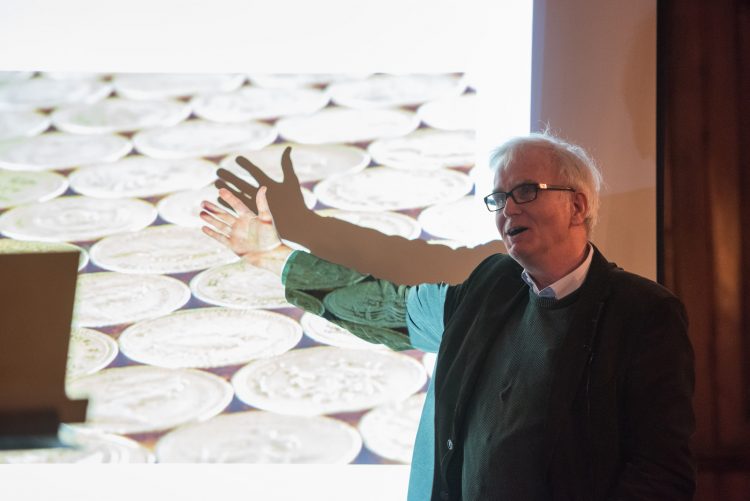
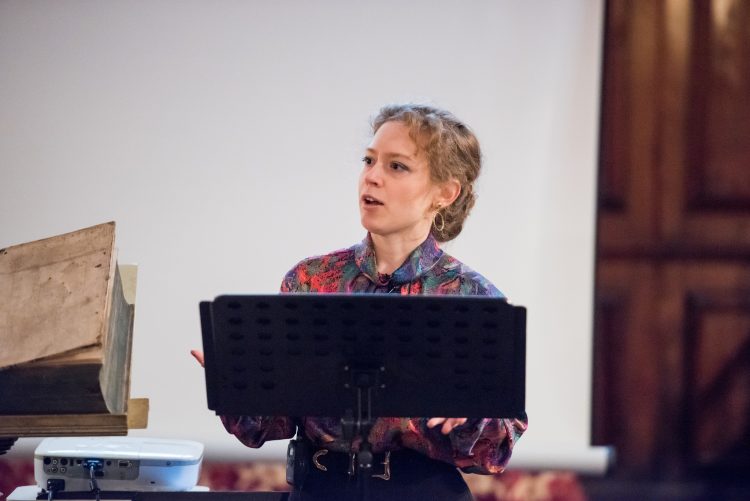
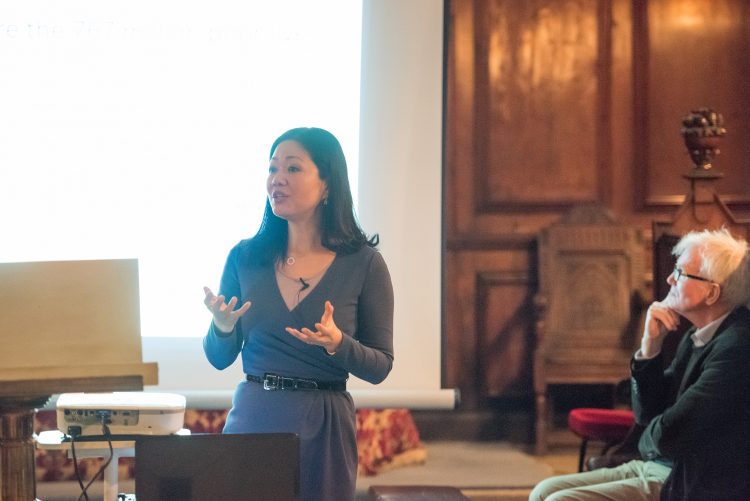
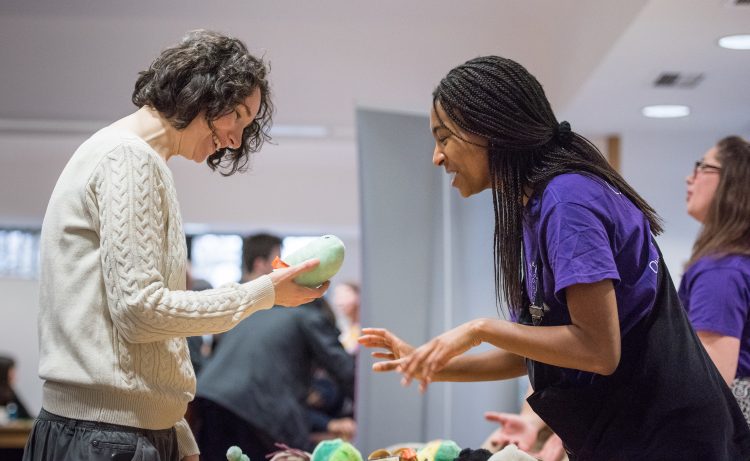
Visitors were invited to throw on their lab coats and take a look around the Lab (the Doctorow Hall), where there were a wide range of demonstrations, displays and experiments from a variety of scientific and medical fields.
Highlights included:
- Virology: cuddly viruses and vaccination game
- Neuroscience: brain plasticity in action, and learning about healthy and diseased brains
- Genetics: extracting DNA from fruit and understanding how genes spread in a population
- Mathematics: fun with head-scratching maths puzzle games
- Parasitology: pathogens under the microscopes
- Immunology: finding out more about blood groups
- Oncology: understanding cancer immunotherapy treatment
- Materials Science: a visual demonstration
- Synthetic Biology: play with nanoparticles.
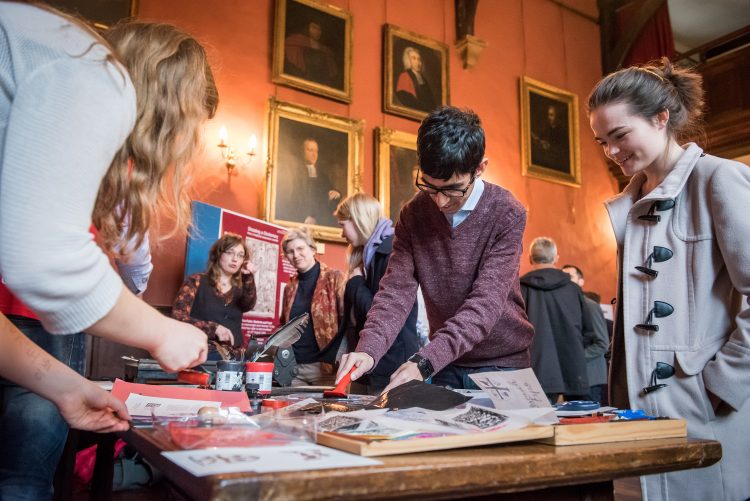
The Salon, in the Old Dining Hall, presented a range of interactive activities and displays relating to the Arts and Humanities and Social Sciences. Highlights included:
Printing the Reformation - 1517 saw the first big media event of modern times: the start of the Reformation by the publication of Luther’s 95 theses. To coincide with the quincentenary of this, some of the College’s medievalists offered the chance to experiment with some early printing techniques in a hands-on demonstration from some of the Hall’s medievalists.
Drawing Words, Writing Pictures - a grand tour of literature and visual culture, presented by our Modern Linguists. How do writers use art and images in their works? What happens when texts are adapted into visual art forms? How do text and image combine to create meaning? Included photomontage, picture poems, Margaret Atwood’s Angel Catbird, and Clavdia Chauchat’s décolletage.
A selection of books from the Aularian collection.
Student life at Teddy Hall c. 1850-1950: a look at a selection of material and photographs from the College Archive, covering such topics as holes in the roof, engagements and dining rights, with Rob Petre (St Edmund Hall Archivist) on hand to act as guide.
The following researchers explained their work through poster presentations:
- Siân Brooke – examining the adage “there are no girls on the internet”, Siân’s research asks about the visibility of gender in popular memes
- Pawel Adrjan – “Who works for young firms?” Young firms help create jobs, especially during economic downturns. But what kinds of jobs do they offer and what kinds of people do they hire?
- Roxana Willis – “Hearing Young Voices”. Youth mental illness is growing. This project aims to develop an interactive type of drama, forum theatre, into a research method that will empower young people to shape the mental health research agenda.
- Jennifer Bunselmeier, “Dictating a Dictionary”. Jennifer combines lexicography, palaeography and digital humanities to find out how a medieval classroom worked.
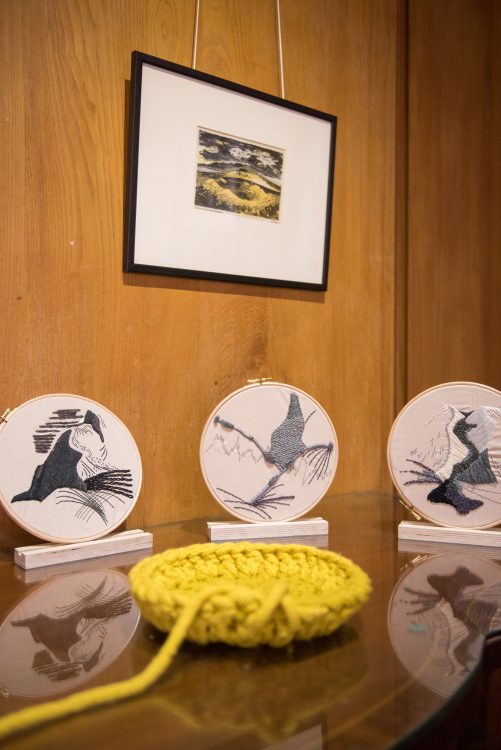
Interim
This year, the Studio moved to the Senior Common Room where it hosted Interim, a show that featured the work of artists at the midpoint of their studies at the Ruskin School of Art.
St Edmund Hall’s six second-year Fine Art undergraduates collaborated to put together an exhibition in which they each responded to pieces in the College’s modern art collection – making this the perfect opportunity to see works by established masters alongside emerging young talent.
The artists taking part were Irina Birt (multimedia), Luke Dawes (painter / multimedia), Jessica Heywood (textiles artist), Hannah Hoibo (painter), Michael McCormack (painter) and Elaine Robertson (painter).
The show received financial support from Hall Principal, Professor Keith Gull, via the Principal’s Fund – a fund provided by alumni giving.
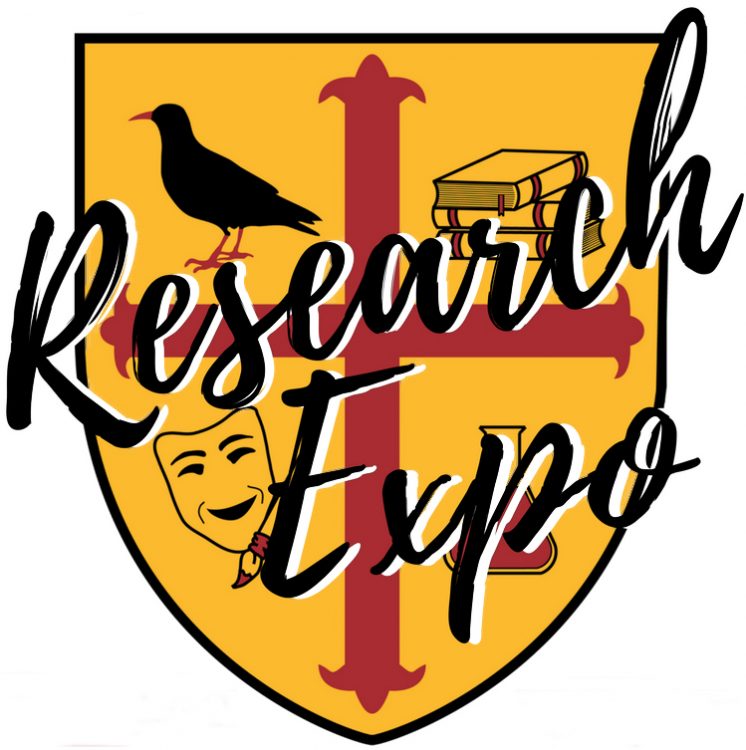
Teddy Hall Pitch Your Research Challenge
The final of this competition was held during the Expo – with six students attempting to explain their research project to a non-specialist audience in an interesting and engaging way, in just three minutes.
The research project could be a third- or fourth-year undergraduate dissertation or other final-year project, a Master’s course essay or dissertation, or a DPhil thesis in progress – all from a mixture of different disciplines. A panel of judges awarded prizes of £100, £50 and £25 to the top three contestants.
Our competition was inspired by the popular Three-Minute Thesis Competition developed by the University of Queensland.
Pitch Your Research Challenge Rules
- Each participant is allowed a single static PowerPoint slide. The slide must not have any transitions or animations, and must be present on the screen at the start of the talk. No other props, music, or equipment are allowed. Presentations must be spoken word (i.e. no poems, raps or songs).
- Presentations must be three minutes MAXIMUM. A signal will be given after 2 minutes 45 seconds, and a final stop signal will be given at 3 minutes. Participants who continue after 3 minutes will be disqualified.
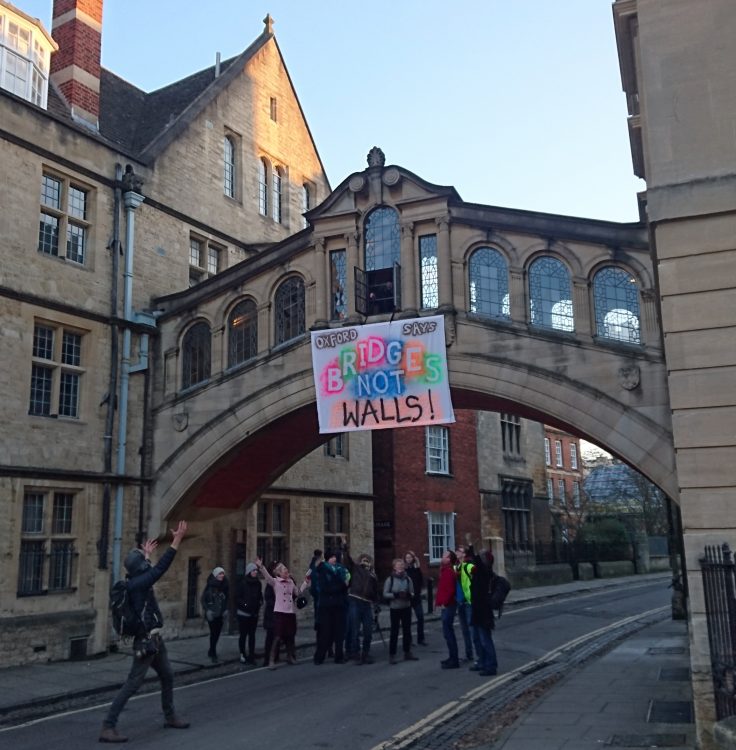
2016: What does it mean for Higher Education in the UK?
Chair John Waite put questions (some of which had been submitted in advance by the audience) to the panellists, to seek their opinions on how the events of 2016 would affect the various levels of Higher Education, from the interests of prospective undergraduates to the challenges that may be faced by research groups in securing large-scale funding.
The panellists were drawn from all three of Teddy Hall’s common rooms, and brought an interesting range of perspectives to the table: Linda Yueh (SCR), Henrike Lähnemann (SCR), Jeanne Ryan (MCR), Philip Chadwick (MCR) and Catherine Canning (JCR).